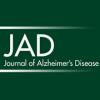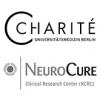12 April 2016
Why do people with Alzheimer's stop recognizing their loved ones?
Alzheimer’s not only steals people’s memories but also their ability to recognize faces, which widens the gulf between people with this disease and their loved ones. A recent study has demonstrated that, beyond causing memory problems, Alzheimer’s disease also impairs visual face perception. This finding may help families better understand their loved one's inevitable difficulties and lead to new avenues to postpone this painful aspect of the disease. Research in this area by the team of Dr. Sven Joubert, PhD, a researcher at the Centre de recherche de l'Institut universitaire de gériatrie de Montréal of the CIUSSS du Centre-Sud-de-l’Île-de-Montréal and a professor with the Department of Psychology at Université de Montréal, has just been published in the Journal of Alzheimer’s Disease.
16 March 2016
Infrequent home computer use may be indicative of early cognitive decline
A new study sheds light on a powerful tool that may detect signs of Alzheimer’s disease before patients show any symptoms of cognitive decline: the home computer.
15 March 2016
A New Perspective on the Possible Cause of Alzheimer's Disease: Microbes
A landmark Editorial issued by 33 senior scientists and clinicians from a dozen countries across the world has been published in the highly regarded peer-reviewed journal, Journal of Alzheimer's Disease. This major call for action is based on substantial evidence indicating that some microbes – a specific virus and particular bacteria – are likely major causes of the disease.
15 March 2016
Omega-3 fatty acids shown to exert a positive effect on the aging brain
Researchers from Charité – Universitätsmedizin Berlin were able to show that omega-3 fatty acid supplementation improves memory function in humans. They studied the effects of supplementation with natural omega-3 fatty acids in healthy older adults over a period of six months. Results from the study, which show that supplementation leads to significant improvements in memory function, have been published in the current issue of the Journal of Alzheimer's Disease.
11 March 2016
Different Kinds of Physical Activity Shown to Improve Brain Volume and Cut Alzheimer’s Risk in Half
A new study shows that a variety of physical activities from walking to gardening and dancing can improve brain volume and cut the risk of Alzheimer’s disease by 50%. This research, conducted by investigators at UCLA Medical Center and the University of Pittsburgh, is the first to show that virtually any type of aerobic physical activity can improve brain structure and reduce Alzheimer’s risk. The study, funded by the National Institute of Aging, was published on March 11 in the Journal of Alzheimer’s Disease.
6 March 2016
Some Ethnicities have a Greater Chance of Developing Alzheimer’s Disease before Age 65
Prof PK Panegyres and Dr HY Chen from Neurodegenerative Disorders Research Pty Ltd (Perth, Western Australia) analysed statistics from the C-PATH online data repository (CODR) and concluded that “ethnicity may impact on Alzheimer’s disease through age of onset, co-morbidities, family history, ApoE gene status and cognitive change over time. The greater odds of early-onset Alzheimer’s disease among African Americans, Alaskans and Hawaiians suggest that some ethnicities may be at risk of Alzheimer’s disease at a younger age.
3 March 2016
Depressive symptoms and the risk of Alzheimer’s disease in mild cognitive impairment
According to a community-based longitudinal study in Japan, researchers found that depressive symptoms increased the risk of Alzheimer's disease (AD) in an amnestic mild cognitive impairment (aMCI) group, but not in a non-amnestic mild cognitive impairment (naMCI) group. Likewise, depressive symptoms increased the risk of aMCI but not naMCI in a cognitively normal group. Depressive symptoms might be a clue to finding prodromal AD in patients with a certain type of MCI.
1 March 2016
Dementia: “illness” label can lower mood
Research led by the University of Exeter looked at people who had recently been diagnosed with dementia, and encountered symptoms such as memory loss, difficulty concentrating or carrying out daily tasks. The study, supported by the Economic Social Research Council and the National Institute for Health Research, and by the European Regional Development Fund, found that people who saw these symptoms as an illness reported lower mood than those who saw it simply as part of the aging process.
11 February 2016
Alzheimer Funding Analyzer Launched on Journal of Alzheimer’s Disease Website
The Journal of Alzheimer’s Disease (JAD) is proud to announce the launch of the Alzheimer’s Funding Analyzer (AFA) on the JAD website. It is a free service that is part of a new suite of online features that have been designed to serve the needs of the Alzheimer disease (AD) research community. AFA presents in-depth data on 115 funders from 42 countries including all of the European Union, Australia, Canada, Ireland, Qatar, the United Kingdom, and the United States.
8 February 2016
Research discovers neuroprotective protein in blood is biomarker of Alzheimer's disease
Tel Aviv University, Harvard, Technion team suggests a routine blood test can reveal Alzheimer's risk and IQ measurements.
Medical professionals have to conduct a long series of tests to assess a patient's memory impairment and cognitive skills, functional abilities, and behavioral changes to accurately diagnose Alzheimer's disease. They also have to execute costly brain imagining scans and even, sometimes, invasive cerebral spinal fluid tests to rule out other diseases. The process is laborious at best -- and subjective at worst.
















